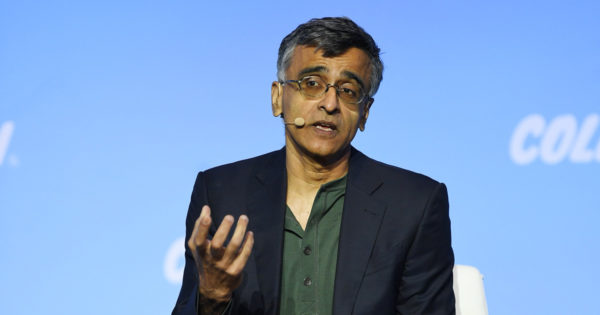Privacy-focused search engine Neeva, founded by former Google ad boss Sridhar Ramaswamy, is expanding to Canada. The company said it has grown to one million monthly users globally, up from 600,000 in May, thanks to its expansion in the U.K., France, and Germany in October.
Available on Android and iOS mobile apps, as well as on desktop via a browser extension on Chrome, Firefox, Edge, and Safari, Neeva operates its own independent search stack. Users have complete autonomy to select their information sources, such as news outlets, shopping, travel and others, based on personal preference and relevance, rather than the algorithm-based search results many are used to seeing. The company has partnered with privacy-focused companies such as Dashlane, a subscription-based password manager, that is beginning to drive meaningful growth, Ramaswamy told Adweek.
“Canada has always been at the forefront when it comes to privacy, and we at Neeva are excited to officially bring our localized and private-first search engine to Canadians,” Ramaswamy said.
Neeva launched its $50 subscription-based search engine in the U.S. market in June 2021. In May, it told Adweek it was too early to share the numbers of paying subscribers. It also offers a free model, albeit with some limited features.
The company’s European expansion comes amid a slew of antitrust complaints against platforms like Google. Within 24 hours of its European launch, Neeva saw 30,000 sign-ups and was the third most searched term on Google, the company said.
The Canada launch comes at a time when the Canadian bill, the Online News Act, will force news aggregators like Google, Meta, and Apple News to pay news publishers for their clicks. While the legislation is under consideration, Facebook has already warned to cut off news sites in Canada earlier in October, Reuters reported. Meanwhile, Neeva has committed to sharing 20% of its topline revenue with its publishers.
A route to meaningful revenue for publishers
Neeva plans to share 20% of its revenue with news sites when the content is used to directly answer a Neeva customer’s query. The company has already partnered with platforms, such as Quora and Medium, since 2021 and pays the platforms when their content is used to directly answer a Neeva user’s query.
Akin to how YouTube shares ad revenue with content creators, the 20% fee is based on an impression-weighted algorithm, said Ramaswamy.
Neeva has yet to assess how the revenue share will impact publishers.
“It will begin to be meaningful when we get a million subscribers,” he added. “We are probably two years from that.”
The company plans to expand to other English-speaking countries, including Australia, New Zealand and India, according to Ramaswamy.
Bet on AI
Neeva is also experimenting with new artificial intelligence formats. For example, the company digests information from top web pages to generate an answer within the search box that viewers can see.
This is similar to ChatGPT, an online chatbot launched in November that amassed over a million people. Released by OpenAI, an artificial intelligence research lab, the chatbot is said to replace internet search engine giants like Google and Bing, the New York Times reported.
However, ChatGPT lacks in providing real-time data or fact verification, according to Ramaswamy, a problem Neeva aims to solve.
“We think [AI] can be the basis of magically new and better experiences for search,” he said.
Neeva has raised over $80 million from investors like Sequoia Capital, Greylock Ventures, Inovia Capital, and Neythri Futures Fund. The company had a successful 2021 $40 million Series B funding round.
Source link




